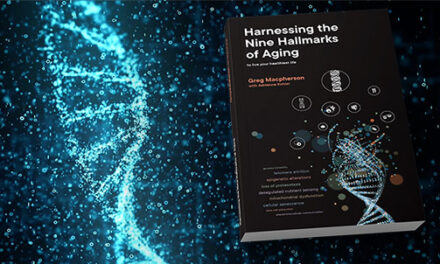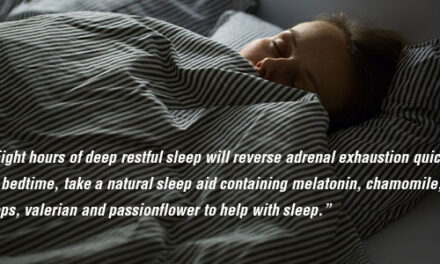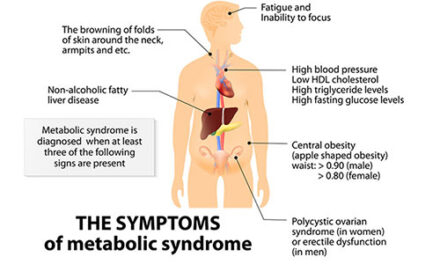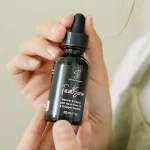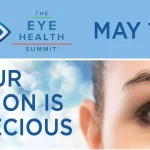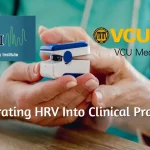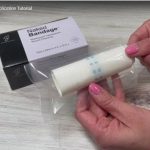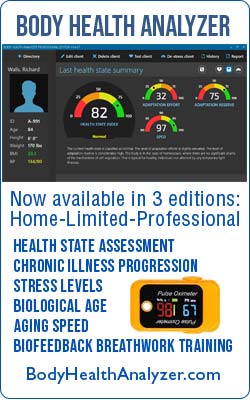I was recently asked to reveal my personal approach to health and longevity; that is, how to delay the usual pitfalls of aging as long as possible. While death is inevitable, the goal here is to have a joyous, fulfilling, and healthy life for as many years as possible along the way. I’ll share what has worked for me, my friends, colleagues, readers, and patients.
As a board-certified psychiatrist and practitioner of integrative medicine, I long ago abandoned the mainstream approach of the “physician as the all-knowing expert, a prescription, for every ailment, and the 10–20 minute office visit.” Instead, I spend an hour or two with patients, work with them as a partner in their health, and look for root causes rather than treating symptoms. For the most part, I depend on natural treatments including lifestyle and supplements, prescribing medications where appropriate and only as a last resort. The natural “prescriptions” that I give out require more participation than simply taking a pill every few hours. Similarly, the key to preserving our health is participation. There are no shortcuts.
Of course, even doing our best in these areas, we all succumb to the inevitable at some point. I had friends who lived cleanly and exuberantly—and they departed too early in my opinion. The lesson here is—live every day fully, since it may be your last. Paradoxically, when taken to heart, this awareness can make life a true joy. We’ve seen people told they had several months to live find great meaning in every aspect of the time remaining, and stuffing lifetimes of quality experience into those hours and days. “The Bucket List,” with Jack Nicholson and Morgan Freeman is a perfect example of the turnaround that a “known” death sentence can inspire. Both diagnosed with advanced cancer, we see how companionship and mutual encouragement can be wonderfully life-enhancing, even—or especially—in the face of death.
So how do we stay as youthful as we can? There are no magic pills, specific hormones, or special diet that are “the answer.” The result derives from a mysterious combination of factors, only some of which we can know or control. There is much that is unknown, as well. According to Deepen Chopra, and others I know who have traveled to India, there are psychic readers there that are able to tell you your date of death if you ask them. This has piqued my curiosity ever since. Does this mean we are already ordained to die at a certain time—so why bother doing anything about it? Knowing our date, do we then make the very best of our remaining time? Or, do we dismiss these predictions as primitive superstition? What effect would it have on your life if you knew your date of death? My own philosophy is it can happen at any time, so don’t take anything for granted—your health, your relationships, and the beauty that surrounds us all if we only take the time to look.
Questions abound, but I also have a few answers, guidelines to healthy living that will help you make the best of the body and life that you have.
Here is a short checklist of Life Enhancers and likely, Life Extenders that I have found to be useful in this quest:
- A positive attitude, including psychological well-being and resiliency in the face of life’s stresses.
- Satisfying, fulfilling relationships.
- Stress Management: Build up your stress-resilience.
- A healthy lifestyle including good diet, appropriate supplements, and regular exercise.
- Hormonal supplementation (herbal, or prescription bio-identical) to compensate for waning levels.
Here is a deeper look at the checklist:
1. Positive Attitude:
Research shows that attitude has a powerful affect on the immune system. A positive attitude goes a long way toward keeping us young, vital, and healthy, just as a pessimistic, negative attitude can be aging. Happiness in not happenstance: it is cultivated. We’ve seen people living in miserable circumstances radiating joy, while many with “perfect” lives are miserable. Two books that I recommend on how to create your own happiness are What Happy People Know by Dan Baker, and Happy for No Reason: 7 Steps to Being Happy from the Inside Out by Marci Shimoff.
2. Spend quality time with others, in healthy relationships:
Be supportive and loving toward your friends and family. In fact, helping others is a great remedy for anxiety and depression. Volunteer at a hospital or homeless shelter. There is no greater reward than what we receive from giving to others. Research shows married men live longer and healthier lives than single ones, and it is likely that all the love and support is keeping them going. And for everyone: don’t forget hugs—natural, safe, free, and mutually beneficial.
3. Stress Management:
Stress is inevitable. It’s not so much what the stresses are, but how we handle them that is most important. As Mark Twain said, “I have had many troubles in my life, most of which never happened.” Allowing our built-in stress response, the fight or flight mechanism, to take over, not only interferes with our productivity, efficiency, and joy, but can negatively impact every system of our body, blood pressure, digestion, cholesterol levels, and even our immunity to infection. All of this robs us of our energy, and our years.
Beyond the Stress Response:
There are a variety of specific brief and simple techniques that effectively deal with chronic feelings of stress and anxiety. One of my favorites is Gary Craig’s EFT (www.emofree.com). Though it’s best done initially with a therapist, once you have a good start, you can continue on your own. A powerful tool, EFT combines positive imagery and specific pressure points on the body to release negative thoughts and feelings. Another outstanding technique, called EMDR (Eye Movement Desensitization and Reprocessing), uses rapid eye movements (or tapping on alternate sides of the body, such as on alternate knees) to help synchronize the two sides of your brain. This allows negative feelings of fear, pain, and anger to move through you, and be released. EMDR helps to put you back in your emotional driver’s seat (www.EMDR.org).
You can also use positive thinking to reprogram your mind. Add some visualization, picturing and sensing how you would like your life to be, and how you would like to experience an ideal planet. Research has shown this to be a very powerful way to create change in yourself and the world around you.
Along with a positive attitude goes a spiritual connection, being in the present and connected to a larger purpose. Life must have meaning, connection to the Universe outside ourselves, whatever one’s concept of the Divine is. This may include regular meditation, prayer, or simply being present to the wonders of nature.
Adaptogens are specialized herbs that support your adrenals and give you sustained energy when needed. Some of my favorites are rhodiola, reishi mushroom and Siberian ginseng, which can be found in my Energy Balance formula.
Deep relaxed breathing is an excellent anxiety and stress reducer, and overall tension reliever. Try it. You won’t be able to both breathe deeply and feel anxious or tense at the same time! Regular meditation practice takes this a step further. Try 10 minutes twice a day. There are many excellent books and courses—or simply sit quietly and focus on your breath. Your mind and body will naturally settle into a quiet, restorative state. You can add in a supplement formula containing theanine, GABA, glutamine and other natural ingredients that help your brain and body to chill, such as my CALM Natural Mind.
4. A healthy lifestyle including good diet, appropriate supplements, and regular exercise:
a) Lifestyle:
Be careful not to overindulge in alcohol, drugs, or food. Beyond their effects on blood sugar and mood, drugs and alcohol also have toxic effects on the brain, liver, and other systems of the body. Don’t substitute food for drugs, either: excessive sugar and simple carbs will only make matters worse, playing havoc with your blood sugar levels, upsetting your mood, and draining your energy.
b) Diet:
Have regular meals, of fresh, organic food. This includes lots of fruits and veggies (living foods), and a moderate amount of protein (fish, chicken, lean meat). It’s better to eat four to five small meals throughout the day rather than the two to three large meals we are used to, and be sure to have a substantial breakfast. This eating pattern helps avoid large fluctuations in blood sugar levels, which are hard on the body and cause aging.
c) Nutritional Supplements:
With age, our bodies are less resilient and forgiving. When younger, we were better able to compensate for deficiencies. Now, you must be more diligent in your supplementation. With stress, too, you need to replenish those lost in the stress response, which uses up many of the nutrients that we need to fully function both emotionally and physically. You can cover your bases by taking a high potency multi-vitamin and mineral combination that includes vitamin B complex, vitamin C, D, E, calcium, magnesium, potassium, zinc, chromium, and manganese, plus trace element, such as boron, vanadium, and molybdenum. You’ll also need to pay special attention to antioxidants.
d) Antioxidants:
A major contributor to aging are the “reactive oxidative species” (ROS), also called “free radicals.” They are created both as by-products of normal metabolism and by the toxins that we ingest from our environment. Free radicals cause cellular damage, cell death, and ultimately, body death. The solution is taking large quantities of neutralizing antioxidants, in the form of both food (fruits and vegetables) and supplements. Antioxidants are potent anti-inflammatories, too, as well as immune system boosters, battling infection and even, potential cancers.
At this point, the American Cancer Society has joined the bandwagon of recommending increased fruits and vegetables for prevention. The most commonly recognized antioxidants are vitamin C, E, selenium, alpha lipoic acid, and plant extracts such as ginkgo, green tea, and ginseng. You need a whole array: they all work together like instruments in an orchestra, each with its own role in the process, to quench the dangerous free radicals. So, a single antioxidant, even in large quantity, won’t do it. Essential fatty acids in the form of fish, fish oil, and flax oil are also important for brain health, hormones function, and even, for soft smooth skin.
e) Supplements for Your Brain:
As a psychiatrist by training, I focus a great deal on the mind. Mental capacity and mood are closely related to hormone levels, and respond well to hormone therapy. I also prescribe supplements based on specific deficiencies. For example, as we age, levels of vitamin B12 decrease due to difficulty in absorption, causing such symptoms as depression and mental fog. Treated by injection or sublingual tablets of vitamin B12, these symptoms often clear up nicely.
- For depression: I will also include amino acids such as 5 HTP and SAMe, plus an array of B vitamins and fish oil.
- For anxiety: I recommend the amino acids, theanine, GABA, glutamine, and taurine, and the herbs, hops, lemon balm, and passion flower.
- Memory is a big issue in aging, and fortunately, we can save our brains! Besides exercising our brains with quizzes, crossword puzzles, social interaction, physical exercise is a known mental health enhancer. Antioxidants are essential for keeping our brains young, then add some other specific nutrients that have other actions. Here are some of the supplements I recommend to preserve and protect our brain: phosphatidyl choline, phosphatidyl serine, acetyl-l-carnitine, ginkgo biloba, and vinpocetine.
f) Sleep:
Be sure to get enough sleep, since sleep deprivation can undermine overall health—and even cause weight gain. If you have trouble falling asleep, and/or staying asleep, take 5-hydroxytryptophan (5-HTP), kava or valerian, combined with some deep breathing. You can add some specific muscle relaxation exercises as well: in sequence, clench each muscle of your body for 10 seconds as you inhale, then release as you exhale to the count of 15. Again, avoid using prescription sleeping medications. They can be addictive, and lead to rebound insomnia when you try to quit. My favorite is my own formula: Nightly CALM, containing CALM plus valerian.
g) Minimize Medications:
Half of the U.S. population is taking at least one prescription drug, and in the over-65 age group, half take three or more. They have serious side effects, including nutrient depletion in an already depleted population. Before rushing to take prescription medications, with their side effects including possible addiction, try one of the many safe, effective natural remedies. In Supplement Your Prescription: What Your Doctor Doesn’t Know About Nutrition, I explain how drugs deplete the body of essential nutrients, causing some of the known side effects (e.g. statins deplete coenzyme Q10 causing muscle pain and weakness, and cognitive problems). I explain not only how to protect yourself while taking prescription drugs, but natural substitutes for dealing with your condition.
h) Exercise:
Use it or lose it. We were meant to move and without regular movement, we deteriorate. Don’t you feel better when you’re exercising regularly? At the age of 80 plus, my mother created a weekly aerobics class in her condo complex and invited her octogenarian friends to join her. They were all the better for it. Exercise increases circulation, oxygenates our cells including brain cells, enhances neurotransmitter production, helps us maintain our weight… and countless more benefits.
i) Hydration:
To provide the substrate for our body chemistry, it’s important to drink the obligatory eight glasses of pure water daily. Often older people are poorly hydrated, and this can show up as impaired brain function. Just add water and see what happens!
5. Hormonal Supplementation:
Many of our body processes are regulated by hormones: chemicals released in minute amounts from specific glands and carried through the bloodstream to target areas where they do their job. The pituitary, the master gland found in the brain, just above and behind the eyes, produces specific “stimulating” hormones that activate the thyroid, adrenals, testes, and ovaries to produce such hormones as thyroid hormone, cortisol, DHEA, testosterone, estrogen and progesterone.
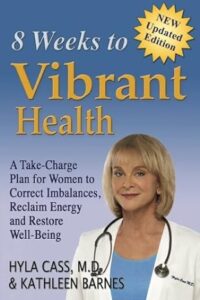
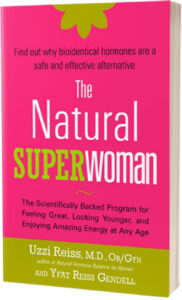 As we age, these hormones go south, and so do we. In my practice, I recommend testing hormone levels, then restoring levels to those closer to youthful ones. There have been scares about women having an increased incidence of cancer after taking female hormones. The Women’s Health Initiative Study, which this is based was using synthetic Premarin and Provera, rather than the bio-identical hormones that integrative physicians prescribe. We just still monitor for any abnormal responses, but the risks are not as great as with the synthetic ones, and the benefits, many. For details, there are a number of excellent books, including my 8 Weeks to Vibrant Health and Dr. Uzzi Reiss’ The Natural Superwoman.
As we age, these hormones go south, and so do we. In my practice, I recommend testing hormone levels, then restoring levels to those closer to youthful ones. There have been scares about women having an increased incidence of cancer after taking female hormones. The Women’s Health Initiative Study, which this is based was using synthetic Premarin and Provera, rather than the bio-identical hormones that integrative physicians prescribe. We just still monitor for any abnormal responses, but the risks are not as great as with the synthetic ones, and the benefits, many. For details, there are a number of excellent books, including my 8 Weeks to Vibrant Health and Dr. Uzzi Reiss’ The Natural Superwoman.
Then, for mental and spiritual health, you can combine prayer, meditation, and emotional clearing, and breathing techniques. This, plus a healthy combination of good nutrition, including the right supplements, exercise, water, and adequate sleep will provide an excellent buffer against aging, while restoring mind, body and spirit. The time and attention required for this pays off enormously. You deserve a life lived long and well!
Adapted from Dr. Cass’ chapter in “The Fountain: 25 Experts Reveal Their Secrets of Health and Longevity” by Jack Challem, editor; Basic Health Publications, Inc, 2009.


